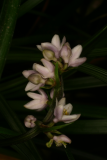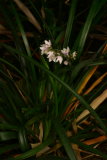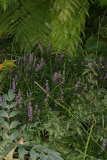Additional notes (click to expand)
Medicinal
In Traditional Chinese Medicine (TCM) the tuber of O. japonicus, known as "mai men dong", is the cardinal herb for yin deficiency. According to the Chinese Herbal Medicine Materia Medica, the herb is sweet, slightly bitter and slightly cold, enters the heart, lung and stomach channels and nourishes the yin of the stomach, spleen, heart and lungs and clears heat and quiets irritability. It is used for hacking dry coughs, dry tongue and mouth and constipation.
The following notes refer to the related species O. japonicus and its uses in traditional medicine.
The root is antitussive, aphrodisiac, expectorant, pectoral, sedative, sialogogue, stomachic and tonic. It is said to have anticancer activity. It is also frequently used in polyherbal treatments of diabetes mellitus[Duke. J. A. and Ayensu. E. S. Medicinal Plants of China Reference Publications, Inc. 1985]. It is used internally in the treatment of dry coughs, fevers, thirst, dry constipation, insomnia, anxiety and palpitations[Bown. D. Encyclopaedia of Herbs and their Uses. Dorling Kindersley, London. 1995].
https://pfaf.org https://pfaf.org/User/Plant.aspx?LatinName=Ophiopogon+japonicus
Other use
Useful plant for soil erosion/ land slides.
Geographical distribution
- Asia-Temperate, Eastern Asia, Japan
Ophiopogon planiscapus Nakai
Family: ASPARAGACEAEGenus: Ophiopogon
Species: planiscapus Nakai
Common names: Lilyturf; Black Mondo
Distribution summary: Japan
Habit: Perennial
Hardiness: H5 - Hardy; cold winter
Habitat: Rocky slopes, scrub & light woodland
Garden status: Currently grown
Garden location: Plants of the World (D)
Flowering months: June, July, August
Reason for growing: Other use
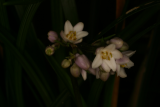
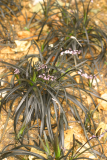
.JPG)
